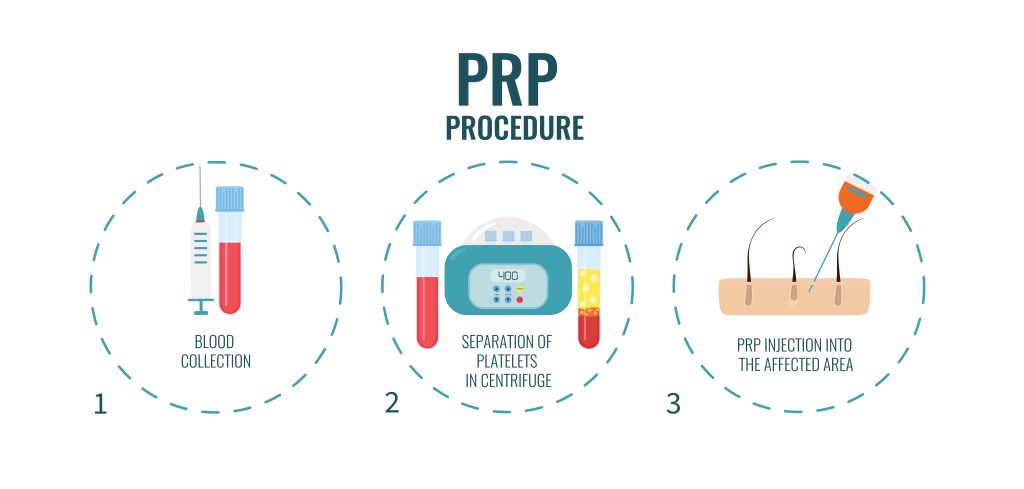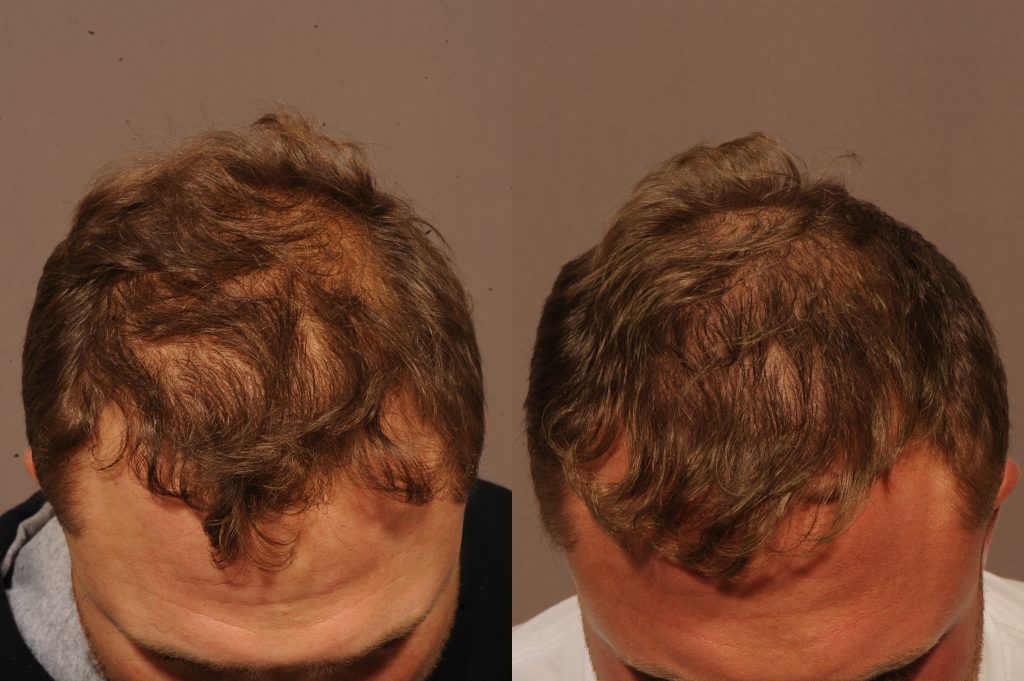-by Alex Montague, MD, double board-certified facial plastic surgeon and hair restoration surgeon
PRP. You may have heard this acronym in orthopedics for joint repair or in the dermatology or medical spa fields for skin health. In all arenas of healthcare, more and more focus is being placed on preventative care and regenerative medicine, and hair restoration is no different! But what is it really, and why do we care about it for hair?
What Does PRP Stand For?
PRP stands for “platelet-rich plasma.” Platelets are very small cells in your bloodstream that help with a lot of essential functions in the body. They contain proteins called “growth factors” that can help tissue repair itself and grow. Not to get too scientific, but if you’re curious, the PRP is prepared by drawing the patient’s own blood and then isolating the platelets so that they are in a plasma solution that is 2-3x the normal physiologic concentration.
How Does PRP Treat Hair Loss?
After the blood is drawn and spun in a centrifuge to separate out the PRP, it is then injected into the scalp of the patient where the hair loss is being noticed. This can help halt hair follicles that are entering their dying phase so that they can produce a higher quantity and quality of hairs. This doesn’t happen overnight, however. Treating hair loss is a “long game” as we have to wait on the follicles to go through their growth cycle.

Our typical regimen at the Quatela Center is to perform 4 PRP procedures over the course of a year and then evaluate the results together. To be clear, PRP is not for everyone in the sense that if you have significant hair loss, what you probably need is a hair transplant. Think of PRP like fertilizer for crops. It works great if the hair (crop) is still there, but if there are no crops, then the fertilizer doesn’t do a lot of good.
What Results Can I Expect From PRP?
We have been noticing great results with PRP on our patients that are good candidates. Their hair is thicker, healthier, and best of all, their hair loss is slowed down tremendously. We also have been noticing much better hair transplant results since combining PRP injections with hair transplant procedures.

If you are interested in more information about PRP and hair restoration, call our office at 585.244.0323 to speak to a Patient Consultant about your personal hair loss situation.

Leave a Reply